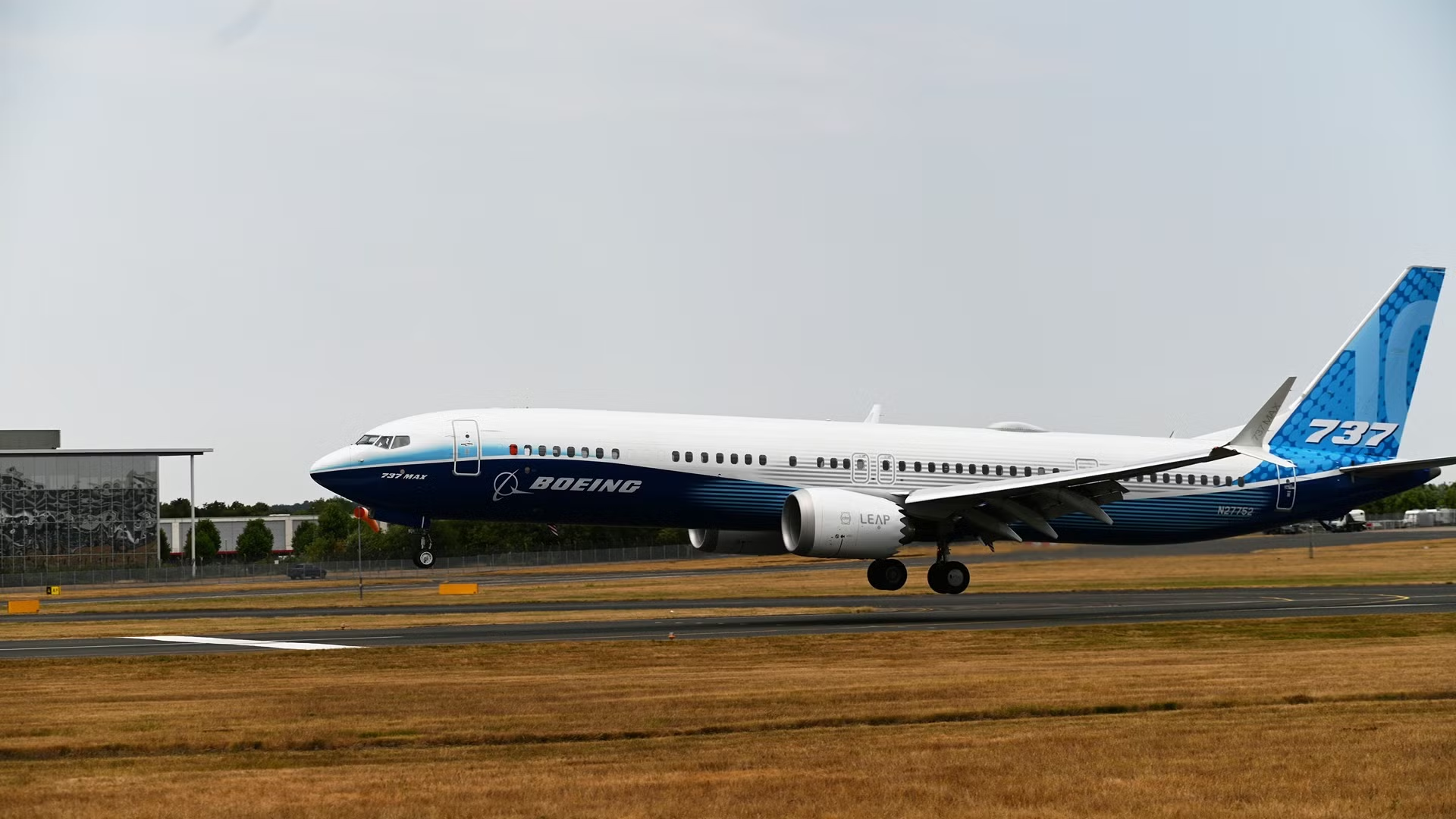World
Boeing Begins Development of 737 MAX Replacement Aircraft

Boeing is reportedly entering the initial stages of developing a new single-aisle, twin-engine jet intended to replace the existing Boeing 737 MAX family. This move comes as the company strives to innovate while addressing past challenges. According to the Wall Street Journal, discussions have already taken place between Boeing’s Chief Executive Officer, Kelly Ortberg, and Rolls-Royce Holdings, which may play a significant role in developing the new aircraft’s engines.
Details of this potential aircraft are still in their infancy, with plans also including a redesigned flight deck. However, Boeing has not confirmed whether these designs will progress to production.
Boeing remains focused on fulfilling nearly 6,000 outstanding aircraft orders while working to obtain final certification from the Federal Aviation Administration (FAA) for aircraft types awaiting approval. The company has faced significant hurdles over the past decade, particularly following two tragic accidents involving the 737 MAX that resulted in the loss of 346 lives. These incidents led to grounding the fleet in 2019, which was only lifted in late 2020.
In a recent incident, an Alaska Airlines flight experienced a door plug failure mid-air, leading to a comprehensive FAA investigation. Findings revealed four missing bolts, prompting the U.S. Justice Department to initiate a criminal investigation into Boeing’s compliance with safety measures.
Ongoing Demand for 737 MAX
Despite its turbulent past, demand for the 737 MAX remains strong. On September 26, 2023, Norwegian Air Shuttle announced plans to exercise options to purchase an additional 30 Boeing 737 MAX 8 aircraft, bringing its total order to 80 airplanes. The final delivery of these aircraft is anticipated by 2031, marking a potential turnaround for the airline, which flourished pre-pandemic with ambitious international routes.
Norwegian’s Chief Executive Officer, Geir Karlsen, commented, “This milestone aircraft order is on attractive terms and secures our fleet growth in a way that supports our planned growth and sustainability targets.”
Additionally, Turkish Airlines, the largest airline in terms of destinations served, announced a significant order of 75 Boeing 787 aircraft along with 150 737 MAX jets. This order represents the largest widebody purchase in a single transaction for the Star Alliance carrier, further supporting its global ambitions and fleet renewal strategy.
FAA’s New Airworthiness Certification Role
As part of a recent regulatory update, the FAA will permit Boeing to issue airworthiness certificates for some 737 MAX and 787 Dreamliner aircraft starting from September 29, 2023. This development follows the revocation of certification privileges for the MAX in 2019 and the 787 in 2022 due to ongoing production quality concerns.
Beginning this week, Boeing and the FAA will alternate weeks for issuing these certificates, which is expected to expedite deliveries and signifies renewed confidence in Boeing’s production capabilities. The current production cap remains at 38 MAX aircraft per month, but the FAA will conduct thorough assessments should Boeing seek an increase in this rate.
Boeing’s focus on addressing production quality and enhancing safety measures is vital as the company navigates the complex landscape of the aviation industry, striving for recovery and innovation in the wake of past challenges.
-

 Lifestyle5 months ago
Lifestyle5 months agoLibraries Challenge Rising E-Book Costs Amid Growing Demand
-

 Sports4 months ago
Sports4 months agoTyreek Hill Responds to Tua Tagovailoa’s Comments on Team Dynamics
-

 Sports4 months ago
Sports4 months agoLiverpool Secures Agreement to Sign Young Striker Will Wright
-

 Lifestyle4 months ago
Lifestyle4 months agoSave Your Split Tomatoes: Expert Tips for Gardeners
-

 Lifestyle4 months ago
Lifestyle4 months agoPrincess Beatrice’s Daughter Athena Joins Siblings at London Parade
-

 Science4 months ago
Science4 months agoSan Francisco Hosts Unique Contest to Identify “Performative Males”
-

 World4 months ago
World4 months agoWinter Storms Lash New South Wales with Snow, Flood Risks
-

 Science5 months ago
Science5 months agoTrump Administration Moves to Repeal Key Climate Regulation
-

 Business5 months ago
Business5 months agoSoFi Technologies Shares Slip 2% Following Insider Stock Sale
-

 Science5 months ago
Science5 months agoNew Tool Reveals Link Between Horse Coat Condition and Parasites
-

 Sports5 months ago
Sports5 months agoElon Musk Sculpture Travels From Utah to Yosemite National Park
-

 Science5 months ago
Science5 months agoNew Study Confirms Humans Transported Stonehenge Bluestones









